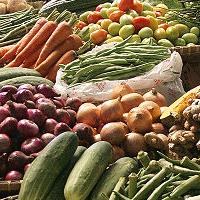(LUXEMBOURG) – While the control system for organic products in the EU has improved in recent years, action is needed on the supervision of imports as well as on product traceability, says a European Court of Auditors report.
The prices consumers pay for products carrying the EU organic label are sometimes significantly higher than for conventional products. The vast majority of organic products consumed in the EU are produced in its territory.
There are no scientific tests for determining whether a product is organic. Therefore, a robust control system that covers the whole supply chain, from producers to food manufacturers, importers and distributors is essential to provide assurance to consumers that the organic products they buy are truly organic. The European Commission plays a central role in supervising the control system.
The EU organic sector has grown rapidly over recent years. The auditors followed up on their previous report from 2012 and assessed whether the EU’s control system for the production, processing, distribution and import of organic products now provides greater assurance to consumers. In addition to following up on the six previously visited Member States, audit visits in the EU were carried out in Bulgaria and the Czech Republic.
The auditors found that the control system has improved and their previous recommendations have been generally acted upon. The Member States audited last time have taken action to improve their control systems and the Commission resumed its own control visits and has now visited most Member States. However, a number of weaknesses remain; the use of enforcement measures for sanctioning non-compliance has not been harmonised across the EU, and Member States’ authorities and control bodies were sometimes slow in communicating cases of non-compliance.
“When consumers buy organic products, they rely on the fact that organic rules have been applied at every stage of the supply chain, whether they are produced in the EU or imported,” said Nikolaos Milionis, the Member of the European Court of Auditors responsible for the report. “The Commission should work with the Member States to remedy remaining weaknesses and make the control system as effective as possible – this is crucial to maintaining consumer confidence in the EU organic label.”
This audit covered the import regimes more extensively. In 2018, the EU imported organic products from over 100 third countries. The auditors found that the Commission has started visiting control bodies in the countries exporting organic products to the EU. They also identified weaknesses in the Member States’ checks on incoming consignments and found that, in some Member States, the control bodies’ checks on importers were still incomplete.
The auditors carried out a traceability exercise for organic products. Despite improvements in recent years, particularly in the EU, they found that many products could not be traced back to the agricultural producer, while it took more than three months for some to be traced back.
The auditors recommend that the Commission:
- address remaining weaknesses in Member State control systems and reporting;
- improve supervision over imports, including through better cooperation with the accreditation bodies and competent authorities of other significant importing markets;
- carry out more complete traceability checks for organic products.


